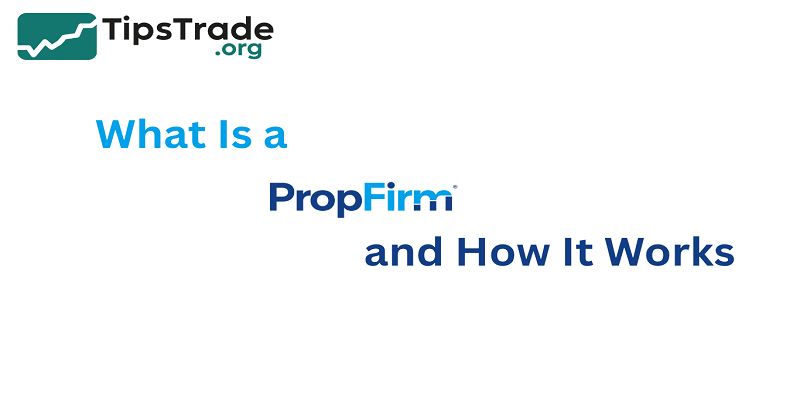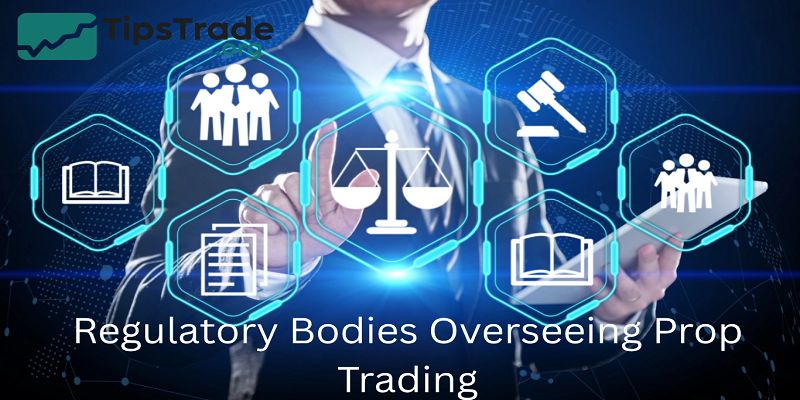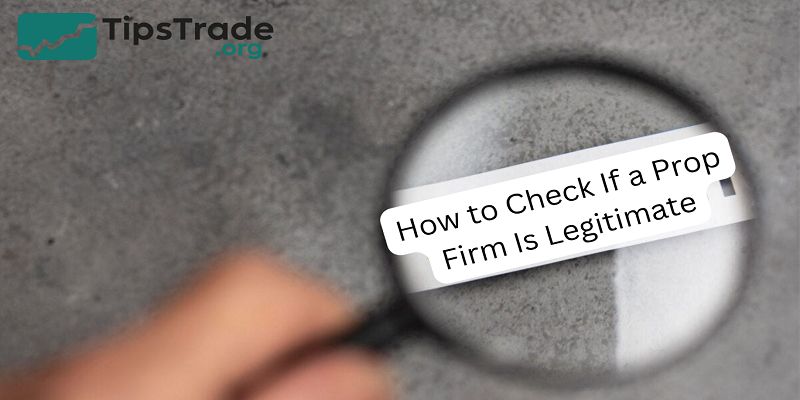Prop Firm Legal is a crucial topic that encompasses the legal requirements and regulations governing proprietary trading firms. It ensures that these firms operate transparently and within the boundaries of financial laws, including proper licensing, tax compliance, and adherence to anti-money laundering (AML) and know your customer (KYC) standards. While many prop firms operate in a regulatory gray area because they trade with their own capital, they must still comply with financial market rules, especially through their relationships with regulated brokers.
What Is a Prop Firm and How It Works

A proprietary trading firm uses its own money—not client deposits—to generate profits from financial markets. Traders who work for prop firms (either as employees or independent contractors) typically:
- Trade the firm’s capital instead of personal funds.
- Receive a share of profits (usually 70%–90%).
- Pay an evaluation fee to qualify for a funded account.
In the U.S., many modern prop firms operate virtually.
They don’t provide direct market access to clients. Instead, traders complete simulated trading challenges using demo accounts that mirror real-market data.
If successful, the trader receives a profit-split contract or a funded account linked to the firm’s capital.
This model contrasts sharply with traditional prop desks at investment banks or hedge funds, which are registered entities supervised under strict financial regulations.
The rise of retail prop firms has created an entirely new business category—one that regulators are still assessing.
>>Read more:
- What Is Prop Firm? Everything From A – Z Traders Need To Know
- Unpacking How Prop Firm Works For Professional Traders
- Prop Firm Benefits – Why More Traders Join Funded Programs
- Prop Firm Rules: The Complete Guide to Succeeding in Proprietary Trading
Are Prop Firm Legal in the U.S.?

The short answer: Yes, prop firms can operate legally in the United States—if they comply with existing laws and avoid acting as unregistered brokers or investment advisers.
Prop firms are not inherently illegal. However, legality depends on how the business operates.
The U.S. regulatory system focuses on activities, not labels. A firm calling itself a “prop firm” does not automatically make it exempt from financial rules.
Key Principles of Legality
- Source of funds: Firms must trade their own money, not customer deposits.
- No public solicitation for investment: They cannot raise funds from the public or promise returns on investments.
- Educational or evaluation purpose: Many firms classify themselves as “educational platforms” offering trading assessments rather than financial products.
- Compliance with CFTC and SEC rules: Activities involving futures or securities must align with specific laws.
When a firm crosses the line—by handling client funds, providing investment advice, or executing trades on behalf of retail investors—it may trigger licensing and registration requirements under the Securities Exchange Act of 1934 or the Commodity Exchange Act.
Regulatory Bodies Overseeing Prop Trading

Prop firms in the U.S. fall under the potential oversight of multiple federal agencies, depending on what they trade:
| Asset Type | Main Regulator | Relevant Law |
| Stocks & Options | SEC | Securities Exchange Act (1934) |
| Futures & Commodities | CFTC | Commodity Exchange Act |
| Forex | NFA / CFTC | NFA Compliance Rules |
| Crypto Derivatives | CFTC (potentially) | Dodd–Frank Act provisions |
The SEC (Securities and Exchange Commission)
- The SEC ensures that firms engaging in securities trading register as broker-dealers if they trade on behalf of clients or solicit public investments.
- A prop firm can remain exempt only if it trades solely its own capital and does not manage funds for others.
The CFTC (Commodity Futures Trading Commission)
- The CFTC regulates entities offering access to futures or leveraged products.
- Prop firms offering simulated or educational trading typically fall outside its jurisdiction—unless they allow live trading on futures exchanges or manage customer accounts.
The NFA (National Futures Association)
- The NFA enforces compliance for forex and futures firms.
- If a prop firm claims to provide “live funded” trading in futures or forex without NFA registration, traders should treat it as a red flag.
FINRA
- While FINRA regulates broker-dealers, most retail prop firms do not hold FINRA membership because they claim to be training providers, not brokerage firms.
Regulation vs Registration: The Core Distinction
A major source of confusion comes from the difference between regulation and registration.
- Regulated firms operate under the supervision of a specific authority (SEC, CFTC, FINRA, etc.).
- Registered firms are legally recognized entities with formal approval to conduct certain activities.
Most retail prop firms are unregulated but legal—similar to online education platforms.
However, this also means no government protection (no SIPC coverage, no official recourse through SEC arbitration).
As of 2025, there is no explicit federal regulation tailored to prop firms that provide demo-based evaluations.
Still, the SEC and CFTC have both indicated increasing interest in the sector, particularly where firms blur the line between education and brokerage.
Key U.S. Legal Requirements for Prop Firms
While there’s no single “Prop Firm Law,” multiple statutes apply indirectly:
- Securities Exchange Act of 1934 – prohibits unregistered brokerage activity.
- Commodity Exchange Act – governs futures and commodities transactions.
- Investment Advisers Act of 1940 – regulates firms providing trading advice for compensation.
- Anti-Money Laundering (AML) laws – require compliance when handling real funds.
- Federal Trade Commission (FTC) – oversees truthful advertising and consumer protection.
To remain compliant, prop firms must ensure:
- Evaluation fees are transparent and non-misleading.
- Marketing materials don’t promise guaranteed profits.
- Payouts are legitimate and recorded as business expenses, not investor returns.
- No false claims of regulation or government approval.
Failure to meet these criteria can lead to enforcement action. For example, in 2023, the CFTC charged several unregistered entities for offering live trading in forex and crypto under the guise of “funded accounts.”
How to Check If a Prop Firm Is Legitimate

Before joining any funded trading program, traders should perform due diligence. Here’s a practical checklist:
Verify Business Registration
- Look up the firm’s registration in U.S. state databases (e.g., Delaware Division of Corporations).
- Confirm there’s a physical business address—not just a PO Box or virtual office.
- Check if the entity is an LLC or corporation (for accountability).
Review Contract Terms
- Read the Trader Agreement carefully. Ensure clauses on payouts, termination, and dispute resolution are clear.
- Avoid firms that include “non-refundable” clauses or force arbitration in foreign jurisdictions.
- Ensure profit-sharing ratios, withdrawal limits, and evaluation resets are transparent.
Research Reputation
- Check reviews on Trustpilot, Reddit’s r/propfirm, and Forex Peace Army.
- Look for consistent reports of withheld payouts, sudden rule changes, or delayed withdrawals.
- Established firms with multi-year records are generally safer.
Confirm Transparency
- Legit firms publicly list their company registration, management team, and payout proofs.
- Beware of entities hiding behind offshore shells or refusing to disclose ownership.
Evaluate Financial Reality
- If a firm promises 90–100% profit splits, unlimited capital, or instant funding, it’s likely unsustainable.
- Authentic firms clearly state that trading occurs on simulated accounts, not live market funds.
Common Red Flags and Warning Signs
Scam or unethical prop firms share similar warning signs. Always be cautious if you notice any of the following:
- No verifiable company registration or contact details.
- Misleading claims such as “regulated by the SEC” (which almost no prop firm is).
- Unrealistic promises, e.g., “Earn $10,000 per month guaranteed.”
- Changing rules mid-evaluation or inventing excuses to deny payouts.
- Refusal to issue written contracts.
- Pushy marketing targeting beginners with “get rich fast” slogans.
If a firm’s primary revenue comes from evaluation fees rather than trading profits, that’s a potential conflict of interest. The business model may depend more on failed challenges than successful traders—a structure regulators are increasingly scrutinizing.
Legal Risks for Traders
Even if prop firms operate legally, traders still face several legal and financial risks:
Lack of Regulatory Protection
- Because most prop firms are unregulated, traders cannot rely on federal compensation schemes (like SIPC) in case of nonpayment or fraud.
- Disputes must be settled through civil litigation or arbitration—often governed by the firm’s chosen jurisdiction.
Contractual Disputes
- Agreements are private contracts. If terms are unfair or ambiguous, courts typically favor the entity that drafted the contract.
- This means traders must read every clause before signing.
Tax Implications
- Earnings from prop firms count as self-employment income in the U.S.
- Traders are responsible for paying federal and state taxes, even if payouts come from abroad.
Cross-Border Issues
- Some prop firms operate from countries like the Czech Republic, Cyprus, or the UAE while marketing to U.S. citizens.
- This creates jurisdictional complexity—U.S. laws might not fully apply, limiting your ability to recover funds.
How Legitimate Prop Firms Stay Compliant
Reputable U.S. prop firms follow several best practices to maintain legality and trust:
- Clear distinction between demo and live trading.
- Transparent evaluation fee structures.
- Written disclaimers stating they are not financial advisers or brokers.
- Accurate marketing language—no claims of regulation or investment returns.
- Documented payout systems through verifiable payment processors.
- Business registration in U.S. jurisdictions such as Delaware, Florida, or Texas.
Some also partner with regulated brokers to execute live trades while remaining within legal boundaries.
The Future of Prop Firm Regulation
As of 2025, regulatory discussion around prop firms is accelerating. According to legal analysts at Willkie Farr & Gallagher LLP (2024), the SEC may require certain high-volume prop firms to register as market participants if they act as liquidity providers or broker intermediaries.
Similarly, the CFTC has explored whether “funded trading evaluations” constitute a form of retail participation in futures markets. If so, more licensing requirements could emerge.
Experts predict three possible outcomes:
- Light-touch regulation introducing disclosure and transparency standards.
- Registration requirement for firms offering live trading with firm capital.
- Enhanced consumer protection rules similar to those governing online investment advisors.
Until then, traders must rely on self-education and vigilance to navigate the landscape responsibly.
Prop Firms and the Boundary Between Trading and Gambling Laws
- Some states have debated whether simulated trading competitions could fall under gambling regulations if participants pay entry fees for potential rewards.
- Although no federal court has classified prop firm challenges as gambling, the distinction depends on whether skill or chance primarily determines the outcome.
- Firms emphasizing education and skill-based evaluation maintain stronger legal standing.
- Those presenting trading as a “chance to win payouts” risk being perceived as gaming operators, especially under state consumer protection laws.
Practical Legal Advice for New Traders
If you’re a U.S. trader considering joining a prop firm:
- Always verify the firm’s identity. Use state corporate registries and search for lawsuits or complaints.
- Avoid sending money overseas. Stick to firms with transparent U.S. banking relationships.
- Read disclaimers carefully. Ensure the firm clarifies that trades are simulated and not investment advice.
- Keep records of all communications. In case of dispute, written evidence helps establish claims.
- Consult a financial or legal professional if unsure about contractual terms.
Remember: legitimate prop firms welcome scrutiny. They value compliance because it builds long-term credibility.
Call-to-Action: Verify Before You Trade
Before paying for any evaluation, do a quick three-step verification:
| Step | Action | Tool |
| 1 | Check company registration | State Secretary of State databases |
| 2 | Review trader agreement | Read all clauses, note payout rules |
| 3 | Research reviews | Trustpilot, Reddit, Forex Peace Army |
If a firm fails to meet these simple standards, it’s best to walk away. No legitimate opportunity requires secrecy.
Conclusion
Prop Firm Legal plays a fundamental role in safeguarding both traders and firms by ensuring lawful operations, clear contractual terms, and reliable payouts. Choosing a prop firm with strong legal compliance guarantees peace of mind, reduces risks related to fraud or mismanagement, and provides a solid foundation for long-term success in trading. Therefore, understanding and prioritizing legal matters is essential before engaging with any prop trading firm to ensure a secure and transparent trading experience. The article above from Tipstrade.org has just provided you . We hope that you find it useful. Wishing you successful trading.
Read more:

